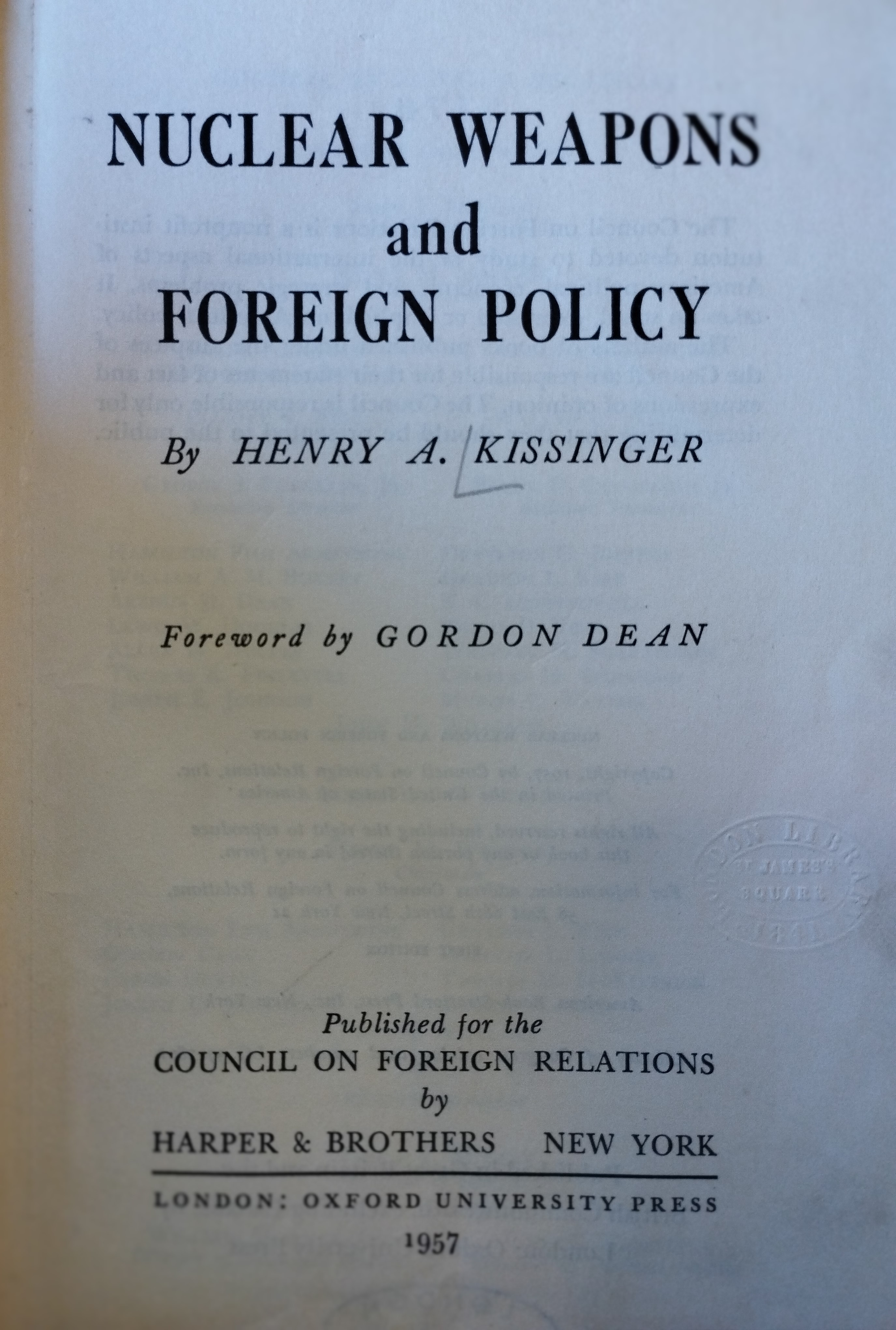Drawing on current issues of international political and diplomatic negotiation, this module will aim to enhance the ability of participants to think process-wise and to develop the skills needed to negotiate and draft agreements effectively through the use of practical exercises. Illustrating best practice in political and diplomatic negotiation analysis, it will provide the opportunity to reflect on and practice international negotiation as an instrument in navigating international relations. Participants in this program will receive a hard-copy of the Workbook on International political and Diplomatic Negotiation, to be used throughout the module.
Estonian School of Diplomacy (https://edk.edu.ee)
Available courses

During the International Relations course, theories will be used to illustrate debates within international politics. Students will analyze leading mainstream theorists and develop their understanding of contemporary debates.
The course goals: to give basic knowledge about various IR theories and concepts. Students will learn about different types of theories and develop an understanding of how theory relates to contemporary issues.
The outcome: students will learn various theoretical approaches from both IR theory and the wider social sciences. Students will also learn to develop their critical understanding of theoretical and policy debates.
This course provides a comprehensive overview of cutting-edge debates on Artificial Intelligence (AI) in International Politics. The course is structured so that students understand the historical context of AI’s development and can connect it to contemporary debates on ethics, future, biases, and structures of power related to AI. Participants will engage with contemporary geopolitical trends, challenges, and opportunities in AI development.
International Economics course introduces students to the economic and political economy theories of international economics and their application to the real world. At the end of the course, students should be able to understand current international economic issues from different economic and political economy perspectives, and critically evaluate the policy options.
Course description:
Compare forecasting and scenario planning • Discuss different approaches to costs and benefits of technology • Compare alternative theories of international trade • Analyze and test international trade models • Evaluate the impact of different trade policies • Identify the role of global value chains • Understand the impact of preferential trade arrangements • Analyze the nation’s balance of payment • Understand how a foreign exchange market operates • Compare the exchange rate regimes and international monetary standards • Explain financial crises, their causes and solutions.
The goal of the course is to provide a conceptual framework to facilitate strategic thinking about cybersecurity and develop an understanding of how cyber considerations can be integrated into national and international security policy and strategy
Cyberspace is the key feature as well as the defining factor of the modern security environment. As a human-made environment, cyberspace is the technology itself. However, cyberspace is also a tool for effective exploitation and navigation of other domains - air, land, sea, space. A growing number of malign state and non-state actors are willing and able to ‘weaponize’ inherent vulnerabilities of cyberspace. Cyber considerations are an indispensable aspect of national, as well as international security. The pandemic crisis in 2020 further emphasized the importance of secure and stable cyberspace for the proper functioning of increasingly digital societies around the globe.
The course aims at providing participants with the conceptual framework to facilitate strategic thinking about cyber defense and develop an understanding of how to integrate cyber considerations into national as well as international security policy and strategy formulation.
The course will underscore the multidimensional character of cyber defense. Diverse views from political, military, academic, and private sectors will be presented in order to highlight the importance of the comprehensive approach and cross-sector cooperation for strengthening cybersecurity on national and international levels.
The course will provide an integrated overview of contemporary geopolitical affairs and security issues to stimulate participants’ critical thinking about issues of strategic importance. The curriculum has been designed to provide the participants with basic skills and knowledge to analyze and design proper policy frameworks and strategies for cyber defense.
Course discription:
· Understand the meaning, importance and trends of economic and business diplomacy
· Identify international trade and relevant trade policies as part of economic diplomacy
· Evaluate different market entries abroad
· Explore goals, practical possibilities, methods and tools of economic diplomacy
· Explore case study and best practices: Estonian economic diplomacy in practise.
Course outcome: At the end of the course, students should be able to understand the meaning and importance of economic diplomacy. Students are provided with core information and practical tools about economic diplomacy to be able to support their countries and private sector in order to increase state welfare and economic internationalisation. Knowledge and tools acquired during the course are useful also for those working internationally for private sector.
International law is traditionally concerned with inter-state relations, but nowadays it involves likewise international organisations, and to a lesser extent also natural and legal persons. The course provides an overview of the central principles and main branches of international law, for example, jurisdiction and immunity, responsibility, peaceful settlement of disputes, law of treaties, diplomatic law, law of the sea, use of armed force and rules of warfare. In addition to the theoretical foundation, relevant practices of states, courts and international organizations are examined in connection with discussed topics.

The aim of this course is to give an overview and a clear understanding of the political, institutional, economic, and historical dimensions of the EU and of European integration.
The course examines the phenomena of terrorism and hybrid warfare in their historical and contemporary perspectives by placing in the broader conceptual framework of insurgency as well as by analysing its manifestations in the EU and its neighbourhood. The course aims to understand the driving forces, character, and dynamics of various forms of terrorism and hybrid warfare in general and, more specifically, strategies targeting the EU Member States and countries in the EU neighbourhood, with a particular focus on Russia’s approach. It also seeks to explore and assess ways in which contemporary societies, governments, and international organisations, particularly the EU, respond to them.
- The goal: To give basic knowledge about the study of foreign policy analysis. Students will learn about the different types of theories and develop an understanding of how theory relates to contemporary issues.
- The outcome: Students will learn various theoretical approaches from both International Relations theory and wider social sciences. Students will also learn to develop their critical understanding of theoretical and policy debates.
- General overview: During the course, theories will be used to illustrate debates within foreign policy analysis and decision-making process.
- Classroom and independent work: Independent work includes reading assignments for each class, active participation in discussions, and a written briefing paper.
In the end of the course the participants should understand the main security issues that affect the Baltic, Nordic and Arctic regions and the tools that nations rely on in mitigating these issues.
Protocol, the Soft Power of Diplomacy by Riina Aasma, Lecturer of Diplomatic protocol and etiquette